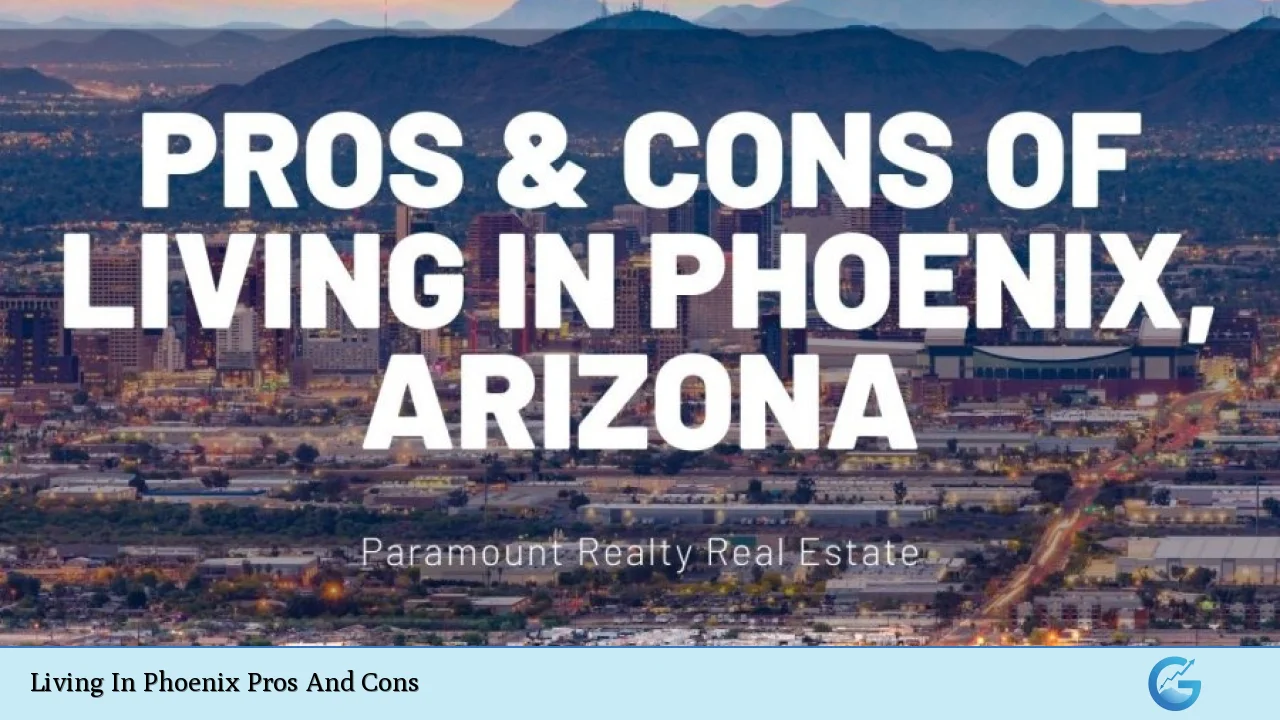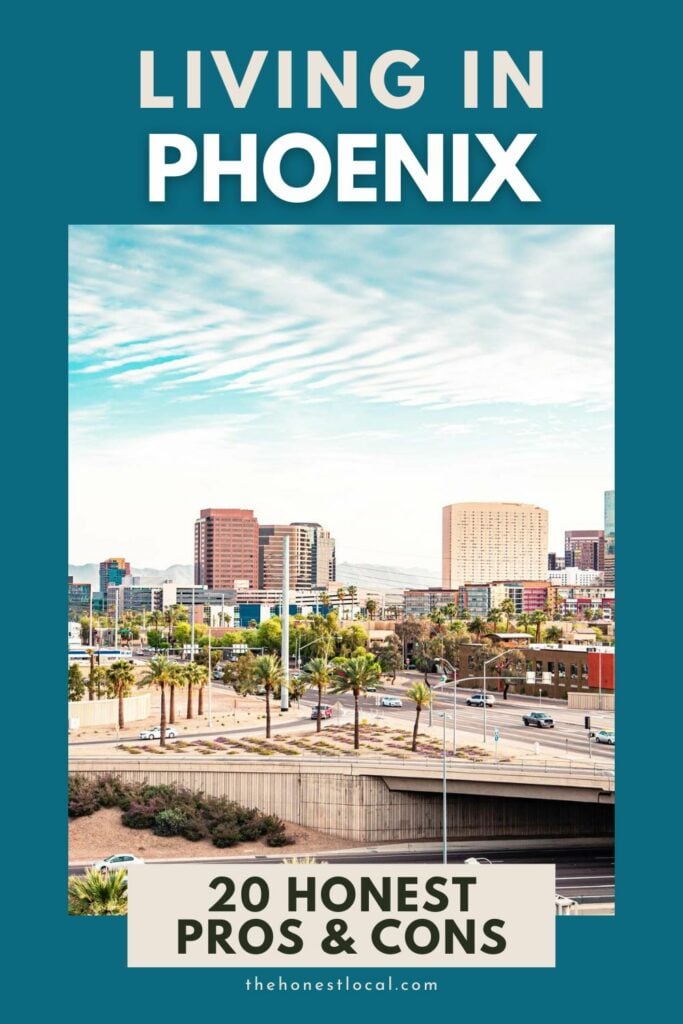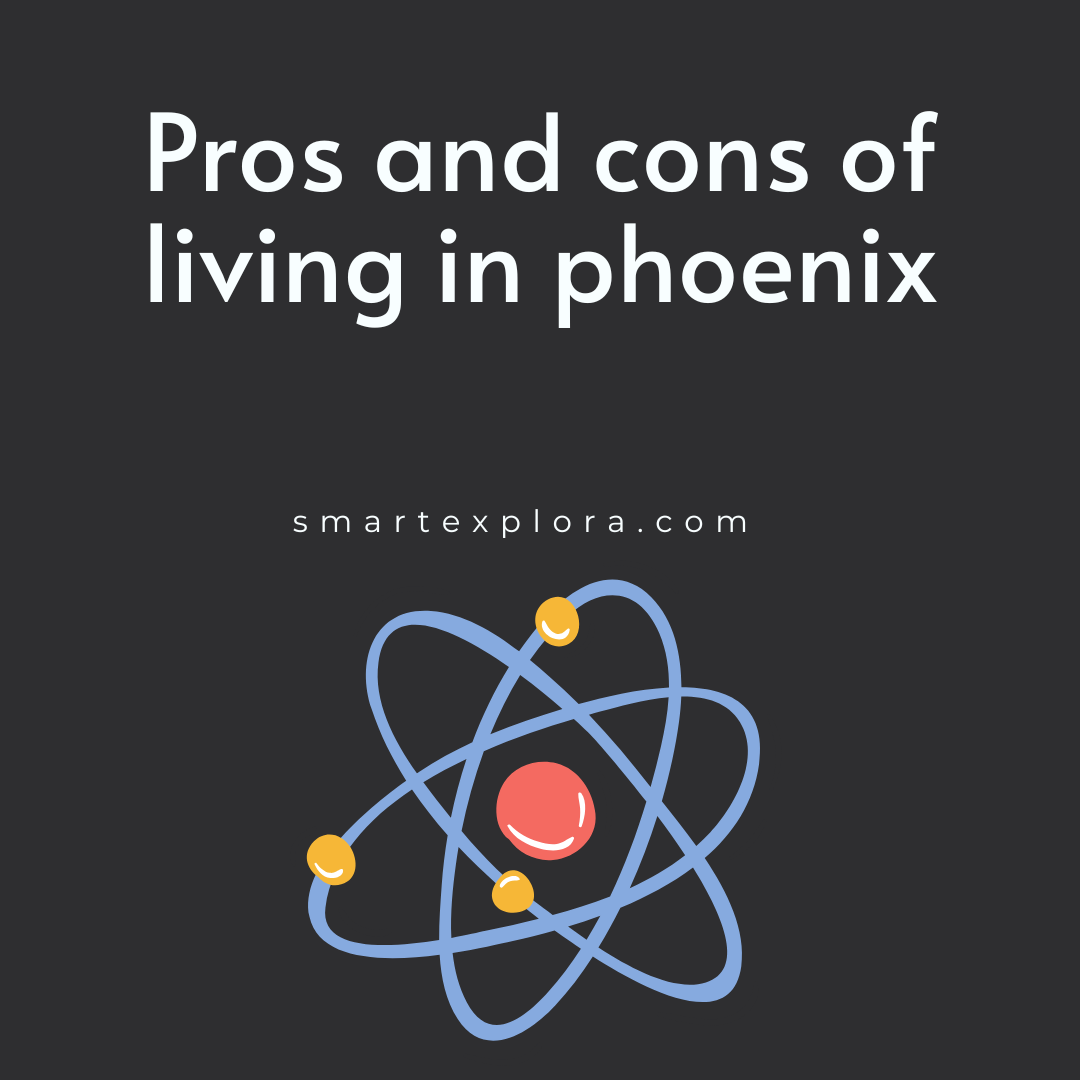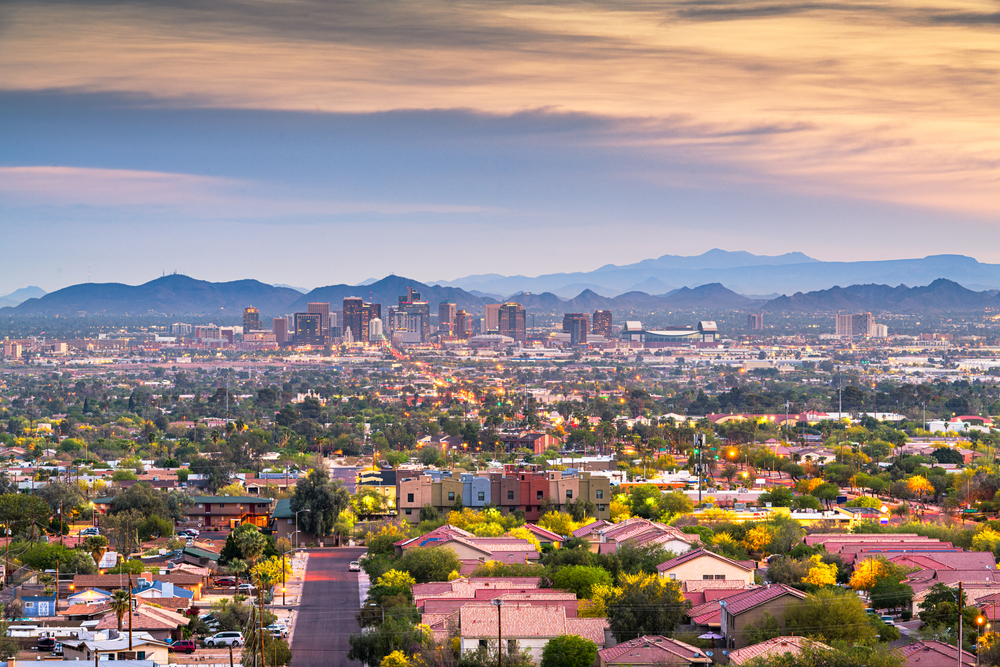Pros And Cons Living In Phoenix

Phoenix, Arizona, a sprawling metropolis nestled in the heart of the Sonoran Desert, beckons many with its promises of sunshine and affordability. However, beneath the surface of this desert oasis lies a complex reality with both compelling advantages and significant drawbacks. For those considering a move, weighing these pros and cons is crucial to making an informed decision.
Understanding the multifaceted nature of life in Phoenix is key for potential residents. This article explores the various aspects of living in Phoenix, offering a balanced perspective on what the city has to offer and the challenges it presents. We will delve into areas like cost of living, employment opportunities, climate, culture, and lifestyle.
Sunshine and Affordability: The Allure of Phoenix
One of the most significant draws to Phoenix is its abundant sunshine. With over 300 sunny days a year, residents enjoy ample opportunities for outdoor activities. This constant sunshine can be a major boost to mood and overall well-being, particularly for those escaping colder climates.
Compared to other major metropolitan areas in the United States, Phoenix offers a relatively affordable cost of living. Housing costs, while rising in recent years, are still generally lower than those in cities like Los Angeles or New York. Groceries and transportation expenses can also be more manageable.
The job market in Phoenix is diverse and growing, particularly in sectors like technology, healthcare, and finance. According to the Arizona Commerce Authority, the state has seen significant job growth in recent years. This growth translates into numerous employment opportunities for those seeking new careers or advancement.
The Desert Heat and Urban Sprawl: Challenges of Phoenix Living
The intense heat is arguably the biggest drawback of living in Phoenix. Summer temperatures regularly soar above 100 degrees Fahrenheit, making outdoor activities difficult and potentially dangerous. Dealing with the extreme heat requires careful planning and adaptation.
Phoenix is known for its extensive urban sprawl, which means residents often rely heavily on cars for transportation. Public transportation options are limited compared to other major cities. This dependence on vehicles contributes to traffic congestion and increased commuting times.
While Phoenix boasts a growing cultural scene, it may not be as diverse or established as in older, more historic cities. The city's rapid growth has sometimes come at the expense of preserving local history and character. Some residents may find the cultural landscape lacking compared to other metropolitan areas.
Delving Deeper: Specific Considerations
Housing
The Phoenix housing market has experienced significant fluctuations in recent years. While prices have cooled somewhat recently, they remain higher than pre-pandemic levels. Prospective buyers and renters should carefully research different neighborhoods to find the best fit for their needs and budget.
Property taxes in Arizona are relatively low compared to other states. However, homeowners should factor in the cost of homeowner's insurance and potential HOA fees. These additional expenses can impact the overall affordability of housing.
Employment
Phoenix offers diverse employment opportunities across various sectors. The technology industry is particularly strong, with major companies like Intel and Honeywell having a significant presence. Healthcare is another major employer, with numerous hospitals and medical facilities located throughout the Valley.
While the job market is generally robust, salaries may not always be commensurate with the cost of living. Researching industry-specific pay rates is essential for negotiating fair compensation. Understanding the local job market dynamics can greatly benefit newcomers.
Climate and Lifestyle
Adapting to the desert climate is crucial for enjoying life in Phoenix. Staying hydrated, wearing sunscreen, and limiting outdoor activities during the hottest part of the day are essential. Investing in a reliable air conditioning system is also a must for most residents.
Despite the heat, Phoenix offers numerous outdoor activities. Hiking, biking, and golfing are popular pastimes during the cooler months. The city also has numerous parks and recreational areas for enjoying the outdoors.
"Living in Phoenix is a trade-off. You get sunshine and affordability, but you have to be prepared for the heat and the sprawl," says Sarah Miller, a long-time resident of the city.
Making the Decision: Is Phoenix Right for You?
Ultimately, the decision to move to Phoenix depends on individual priorities and preferences. Those who value sunshine, affordability, and a growing job market may find Phoenix an attractive option. However, those who are sensitive to extreme heat, prefer walkable cities, or seek a rich cultural history may want to consider other locations.
Thorough research and careful consideration are essential before making the move to Phoenix. Visiting the city during the summer months can provide a firsthand experience of the extreme heat. Talking to current residents can offer valuable insights into the realities of daily life.
Phoenix offers a unique blend of opportunities and challenges. By weighing the pros and cons carefully, potential residents can make an informed decision about whether this desert metropolis is the right place to call home. The allure of the sunshine and affordability is strong, but the realities of the desert climate and urban sprawl must be acknowledged.


![Pros And Cons Living In Phoenix Pros and Cons of Living in Phoenix, Arizona [2022 Version] - YouTube](https://i.ytimg.com/vi/1adndK-vT7U/maxresdefault.jpg)















